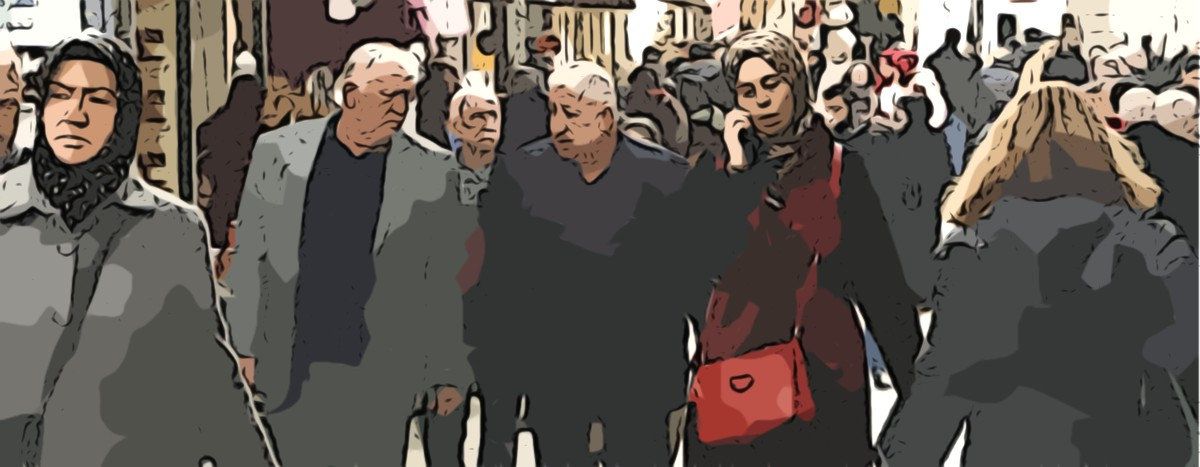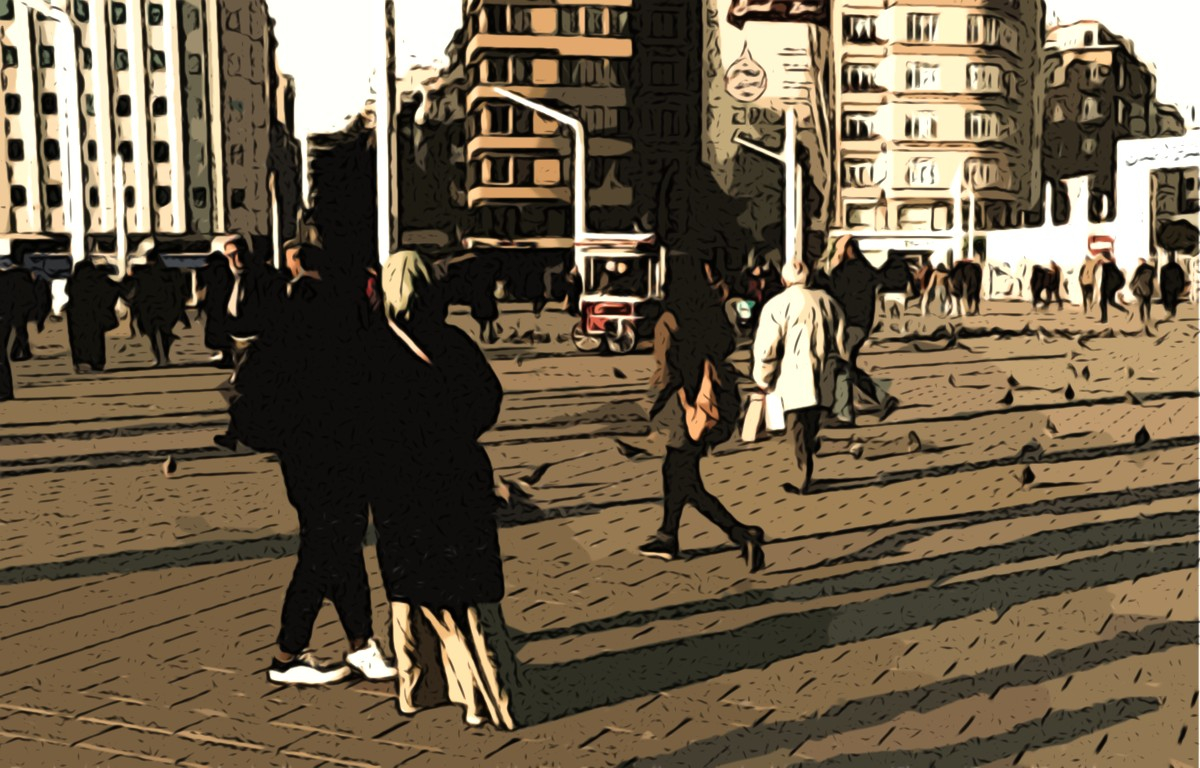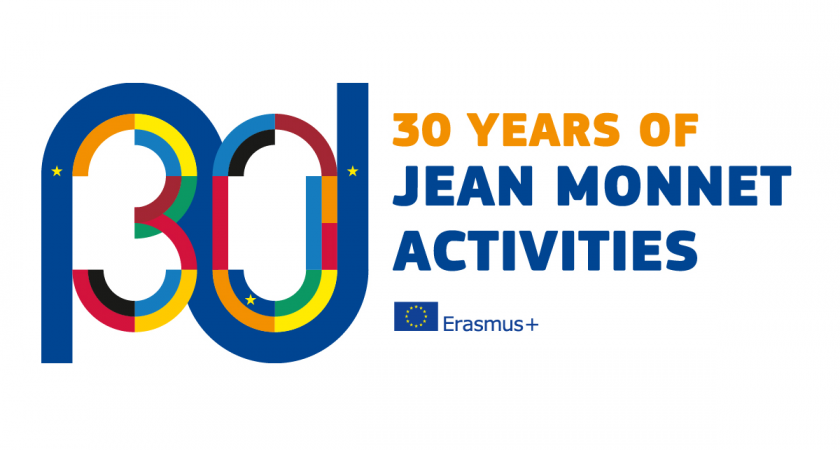
Syrian refugees in Istanbul: the unwelcome guests
Published on
Translation by:
Turkey hosts more refugees than any other country, mainly Syrians who have fled the bloody civil war next door. But eight years into the conflict, as Europe closes its doors to refugees, patience in Turkey is also beginning to run out.
If food is the map for understanding the habits and customs of a country, walking through the Fatih neighborhood in Istanbul could fool a first time visitor. The markets that surround one of the city's biggest mosques are filled with Syrian restaurants, the signs on the spice shops and food packaging are in Arabic and even the Turkish and Syrian accents are mixing.
Since the beginning of the civil war in 2011, more than 500 thousand Syrian refugees have arrived in Istanbul according to official estimates. A significant proportion have moved to the conservative neighborhood of Fatih, creating a language barrier and changing the morphology of the entire area.
“It's not easy to talk with them,” says Mustafa Özbek of the NGO İnsani Yardım Vakfı, “they are very reluctant to speak with the press and sometimes it can take days to make contact.”
The reason for this reluctance is simple: Migration in Turkey has become a challenge not just societally but politically. The government of President Recep Tayyip Erdoğan lost Istanbul twice (the vote was repeated after the ruling AKP party claimed irregularities) in the 2019 election, in which tensions over migration played a role. In general, migration has become a key part of public debate since 18 March 2016, when the European Union and Turkey signed an agreement designed to severely restrict the flow of refugees into Europe.
A troubled arrangement
The ‘EU Turkey deal’ envisioned that Turkey would try to prevent sea crossings to Greece and agree to an exchange whereby for each refugee returned from the Greek islands, another would be resettled in the EU from Turkey. Brussels also proposed a large financial ]package of around 6 billion euros](http://www.europarl.europa.eu/legislative-train/theme-towards-a-new-policy-on-migration/file-eu-turkey-statement-action-plan) for humanitarian aid and integration programmes for Syrians living in the country. Turkey was also promised visa-free travel to the EU for its citizens and re-energised negotiations on EU membership (both of which were never realised).
Deniz Sert, Jean Monnet Chair of Migration and European mobility at Özyeğin University is a critic of the deal, beginning with the goal of deterrence.
“Since the flow of refugees was already decreasing in 2016, there are those who say that the agreement should have guaranteed a decrease of deaths at sea,” she said. “However, thanks to research, we know that in reality the rate of people dying has actually increased. Regarding the rationale of exchange, we know that many European countries no longer accept refugees while some, like Hungary, never have. So generally, the number of resettlements is very low.”
According to official estimates, Turkey is hosting 3.6 million Syrians, while the number of people resettled to Europe from Turkey has not exceeded 20 thousand.
Dr. Sert also questions the effectiveness of the money pledged to Turkey.
“I don't want to prolong the argument but this financing has created a kind of refugee management industry and a lot of money is lost during the transit from donor to refugee.”
Frequent complaints over delays in delivering the money has highlighted Ankara's distrust in the agreement, which was signed by the former prime minister Ahmet Davutoğlu, and in the opinion of several analysts interviewed by Cafébabel (who requested anonymity), Erdoğan has likely been opposed to the agreement with Brussels since the beginning.
Internal deportations
Currently, the solutions being discussed are few and confusing. Turkey has closed its southern border with Syria and is preventing refugees leaving by boat to Greece. Managing 3.6 million refugees is not simple, especially when more than 500 thousand are in Istanbul, which has a total population of about 18 millionaccording to unofficial estimates. Last July, the government began to relocate tens of thousands of Syrian refugees in the city back to the provinces where they had originally registered.
“As a result of the elections, the government has sought ways to return refugees to their point of entry into the country,” explains İzzet Şahin from the NGO İnsani Yardım Vakfı. “However, these people come to Istanbul for economic and employment reasons. The results of the Interior Ministry's decision have been negatively perceived because the migrants are forced to move.”
In any case, the number affected by the operation is small compared to the total number of Syrian residing in Fatih. There are additional problems, as Şahin notes: “At this point, the younger generation has learned Turkish. It would be difficult for them to return to Syria and begin again in Arabic.”

From a wider perspective, the perception of ordinary Turks was that the Syrians would only linger for a few years—a feeling reinforced by the state granting them temporary residence permits. However, over time their continuing permanence has created tension.
“Here the migrant phenomenon was not presented in terms of 'crisis'”, claims Deniz Sert. “The vocabulary is very different from the European one. In the beginning, these people were considered guests but, as time passed, the patience of the people in Turkey has decreased. Today, we begin to observe anti-migrant and anti-refugee feelings.”
’Safe’ zone?
The abrupt announcement in October 2019 that the US would withdraw its troops from northern Syria sparked a military intervention into the region by Ankara designed to push back Kurdish forces of the YPG which it regards as terrorists. The Turkish government has advocated for the creation of a so-called safe zone in northern Syria where they hope to transfer up to 2 million refugees.
However, analysts interviewed by Cafébabel point out that the project—which involves significant construction of buildings along a strip just over thirty kilometres wide—could cost more than 20 billion euros.
“If I were a European leader,” says Dr. Sert, “I would aim for influence in that area, because at the moment no one, neither academics nor journalists, know the actual state of things—what is truly happening there.”

The series AcadeMy is realized with the support of the European Union's Jean Monnet program. For additional information about the objectives and the role of the Jean Monnet program take a look at the European Union's official website.
Translated from A Istanbul l’accordo sui migranti tra Ue-Turchia sta diventando un problema



